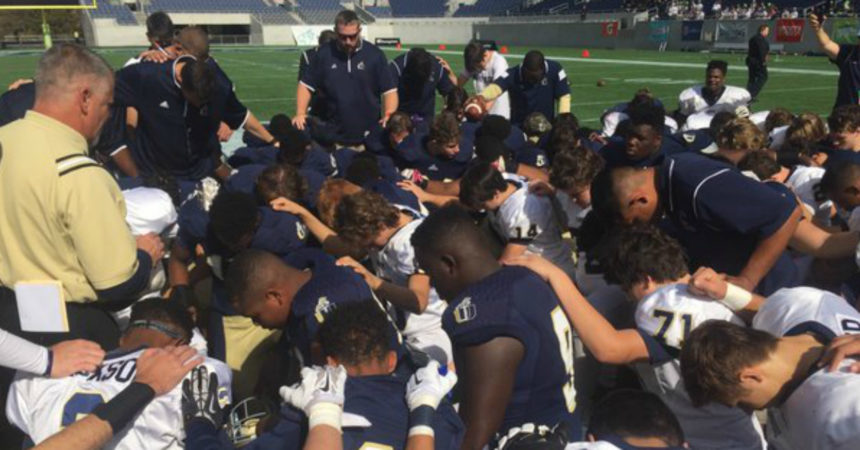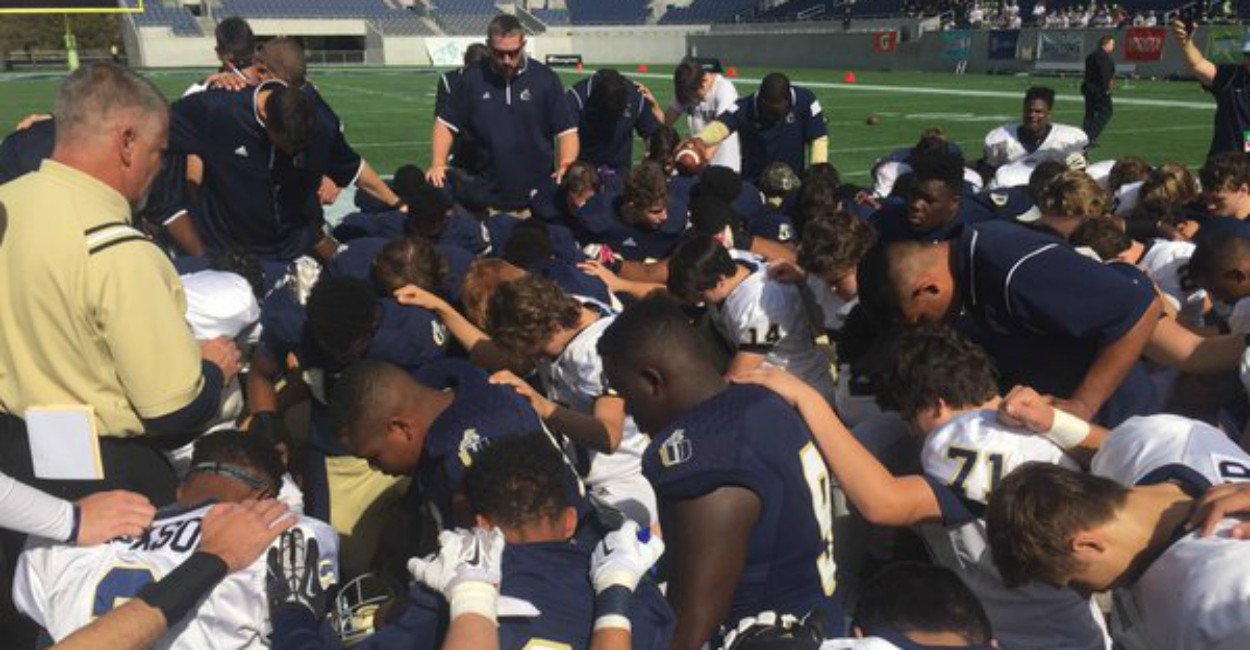
Judge rules against school on football game prayer
By Jim Saunders
The News Service of Florida
A federal judge has sided with the Florida High School Athletic Association in a dispute about whether a Christian school should have been allowed to offer a prayer over a stadium loudspeaker before a football championship game.
U.S. District Judge Charlene Edwards Honeywell on Wednesday rejected arguments by Tampa’s Cambridge Christian School that the association — which governs high-school sports in the state — had violated free-speech and other constitutional rights by not allowing a prayer over the loudspeaker in 2015 at Camping World Stadium in Orlando.
Honeywell, upholding a recommendation from a magistrate judge, said the association has procedures that include allowing a designated public-address announcer to use the loudspeaker for approved announcements. She wrote that it is “clear that if the prayer was offered by the public-address announcer, this would be viewed as an endorsement by the state, which would be impermissible.”
“Cambridge Christian argues that it never requested the public address announcer to give the prayer, but that it instead sought access to the loudspeaker so that a representative of either school could pray over the loudspeaker.” Honeywell wrote. “This, however, amounts to a request that the FHSAA open its loudspeaker, which otherwise is not accessible to private parties, to allow for prayer to be broadcast during a government controlled and hosted event. This would likewise be perceived as state endorsement of Cambridge Christian’s religious message.”
The case stems from a December 2015 football championship game between Cambridge Christian and Jacksonville’s University Christian School. Honeywell wrote that Cambridge Christian and University Christian gathered at mid-field before the game for a prayer, though it was not broadcast over the loudspeaker and was not audible to the crowd in the stands.
“As previously noted, the FHSAA did not prevent or discourage Cambridge Christian or the spectators at the stadium from praying, or from disseminating that prayer to all in attendance,” the 30-page ruling said. “Moreover, even if denial of access to the loudspeaker did burden a religious belief of Cambridge Christian, such a burden did not amount to a substantial one, but simply inconvenienced the belief, because Cambridge Christian was not denied alternate means of engaging in communal prayer.”
Cambridge Christian filed the lawsuit in September, alleging violations of the U.S. Constitution, the Florida Constitution and a state law known as the Florida Religious Freedom Restoration Act.
“By rejecting Cambridge Christian’s request for pre-game prayer over the loudspeaker on the basis of its religious character and viewpoint, the FHSAA unlawfully prohibited Cambridge Christian’s private religious speech and unreasonably burdened its right to freedom of speech and free exercise of religion,” the lawsuit said. “In so doing, the FHSAA violated Cambridge Christian’s civil and religious rights under the United States and Florida Constitutions and the Florida Religious Freedom Restoration Act.”
Honeywell in October referred the case to Magistrate Judge Amanda Arnold Sansone, who filed a 36-page recommendation in February that said the case should be dismissed. In her ruling Wednesday, Honeywell left open the possibility that Cambridge could file a revised lawsuit, though she wrote that she “questions whether the deficiencies to its claims can be cured by amendment.”







